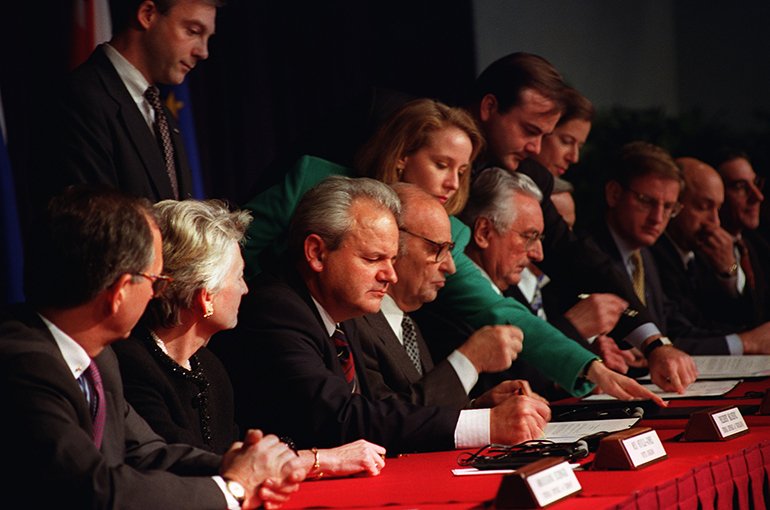Those in a position to help need to show that they care for all citizens of Bosnia and Herzegovina

A quarter of a century since the end of the Bosnian War, Bosnia and Herzegovina is again in a perilous position, and the people who live there are worried. University lecturer of History of International Relations Iva Vukušić explains in The Conversation that what has been achieved in the past, may not be enough to prevent violence to break out in the present.
Dysfunctional constitutional setup
Since the end of the Bosnian War, Bosnia and Herzegovina has been stuck in a dysfunctional constitutional setup that has divided the country. Vukušić: “The Dayton Agreement that ended the War created incentives for politicians to stoke the flames of ethnic tensions and made it possible for them to indulge in widespread corruption without losing office.” Meanwhile, the international community has gradually lost interest in in funding state-building efforts in the region. “For the past 15 years, there has been no vision, no enthusiasm and little hope for a better future,” Vukušić says.
Call to action
In this complicated context, Bosnian Serb nationalists are threatening to declare independence. As we know, the last time this happened there was bloodshed and the widespread, systematic persecution of non-Serb communities. “This crisis, as a culmination of years of decay, is a call to action to ensure a reasonable way forward, without violence and with safety and prosperity for all citizens of Bosnia and Herzegovina, regardless of background,” Vukušić states. “What Bosnia and Herzegovina now desperately needs is attention from politicians abroad and a sense that someone – anyone – in a position to help cares.”

